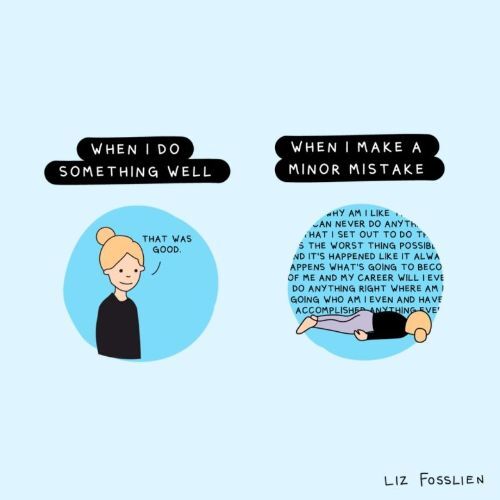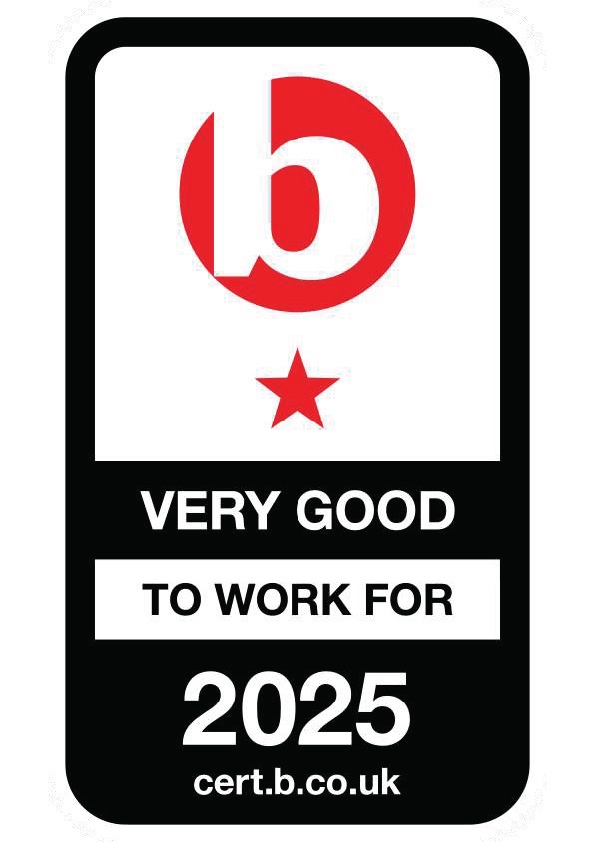You are your own worst enemy
Imposter syndrome has a lot of names like inner critic and self-doubt.
It’s that voice in the back of your head that’s stopped you from applying for new roles. The fear that you are not good enough or smart enough.
You are not alone.
“As many as 65% of professionals have suffered/are suffering from Imposter Syndrome”
[Source]
The truth is you’ll never be able to completely get rid of that pesky imposter feeling. It can appear when you start a new job, you step out of your comfort zone, or when you set that unrealistic expectation of yourself to be perfect.

This is a great image by Liz Fosslien that perfectly sums up how a lot of people treat themselves.
We can be so tough on ourselves, for some people in their mind the mistake was a catastrophic event. When in fact it was just a minor inconvenience.
But you can quieten the imposter voice to just a whisper
Here are five things to try:
- Each week, on a Monday or Friday, take 10-20minutes to reflect on what you have achieved.
- Keep a spreadsheet and add to it every time you have received positive feedback on your work. So, whenever you start to doubt yourself, you can read through the list.
- Spend time with friends who will provide you with honest feedback and remind you what you are capable of.
- Write down the things you are worried about, cross out the things you can’t control and work on the things you can.
- Always seek opportunities for learning, the more you learn the less you will feel like a fraud.
A good tip is to investigate your employer’s apprenticeship levy. Develop your leadership skills on a course that is cost-effective for your employer. In other words, certain businesses must pay an apprenticeship levy, they can claim this levy back by putting it towards courses for their employees.
Everyone has experienced feelings of imposter syndrome at some point in their life or at many points in their life. A CEO, a teacher, an inventor, a student and a parent.
“Imposter syndrome isn’t gender specific. Most people have an insecurity. How many people wake up in the morning and say, ‘I’m amazing’ and believe it? We are all working it out together”
Spencer Graydon - CEO, Imago Venues
Despite what your inner critic says, you are enough.
How have you dealt with imposter syndrome?
Sign up to our Go Perform blog for more tips and ideas to help you perform better
#GoPerform - Helping you perform better in meetings and networking events





